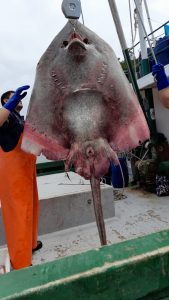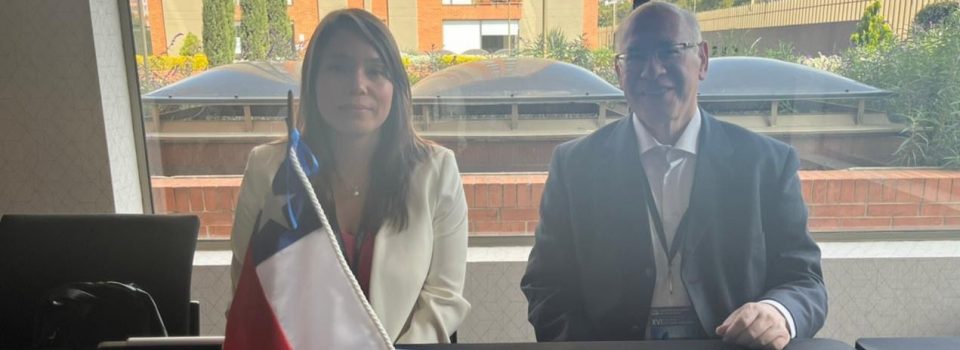IFOP attends sharks, rays and chimaeras international meeting
October 18th, 2022 It reviews regional action plan these resources conservation and management.
It reviews regional action plan these resources conservation and management.
The Regional Action Plan (PAR) for sharks, rays and chimaeras in the Southeast Pacific Scientific Technical Committee (CTC) XVI annual meeting was held in Bogotá cityf, Colombia, organized by the South PacificPermanent Commission (CPPS), in which scientists and technicians from Chile, Colombia, Ecuador and Peru participated.
 The meeting aims to facilitate knowledge and experiences exchange and to learn about member countries regional progress on RAP-Shark Regional Action Plan application. In addition, the link between CPPS and international organizations such as Inter-American Tropical Tuna Commission (IATTC) and South Pacific Regional Fisheries Management Organization (SPRFMO) was strengthened. In this regard, during this year there have been significant advances in the work of understanding and cooperation memorandum between these organizations. This meeting was attended by the Chilean delegation made up by Leslie Camila Bustos from Fisheries and Aquaculture Undersecretariat and Patricio Barría, Fisheries Development Institute researcher .
The meeting aims to facilitate knowledge and experiences exchange and to learn about member countries regional progress on RAP-Shark Regional Action Plan application. In addition, the link between CPPS and international organizations such as Inter-American Tropical Tuna Commission (IATTC) and South Pacific Regional Fisheries Management Organization (SPRFMO) was strengthened. In this regard, during this year there have been significant advances in the work of understanding and cooperation memorandum between these organizations. This meeting was attended by the Chilean delegation made up by Leslie Camila Bustos from Fisheries and Aquaculture Undersecretariat and Patricio Barría, Fisheries Development Institute researcher .
The Chilean delegation presented a memorandum of understanding and cooperation between the CPPS and the IATTC Work Plan proposal to initiate macro-scale South Pacific tile shark stock assessment. A joint research that will have a five years duration period. This initiative was accepted and approved by the CTC-PAR-Shark assembly and considers participation of multidisciplinary teams of researchers and technicians from all CPPS countries and IATTC scientists.
During the annual meeting, the 2021-2022 period Regional Action Plan for Sharks was reviewed, by strategic line where new methodologies were announced to specify and optimize results; In addition, each of the countries presented their advances and progress. The strategic lines analyzed were: Research for planning and conservation; Fisheries management, species and ecosystems conservation and/or protection; Control and surveillance; Social and economic aspects; Training, communication and dissemination and strategic alliances.
Finally, Scientific Technical Committee’s delegates recognized Shark PAR’s significant progress and its impact on the various countries, as a mechanism for the conservation and management of sharks, rays and chimaeras, and their habitats in the region.
Press related links:
